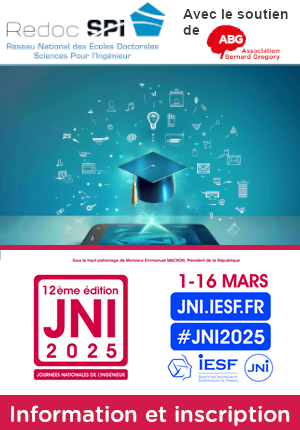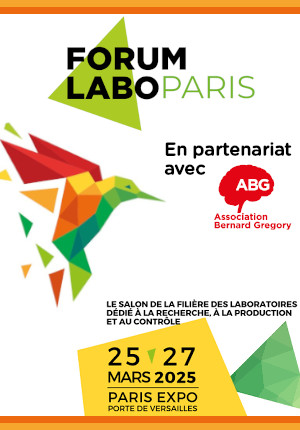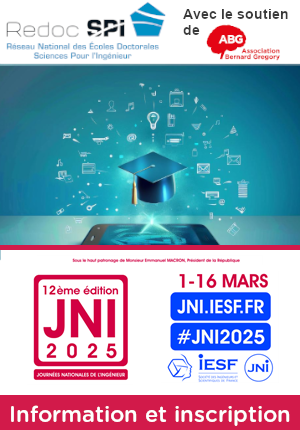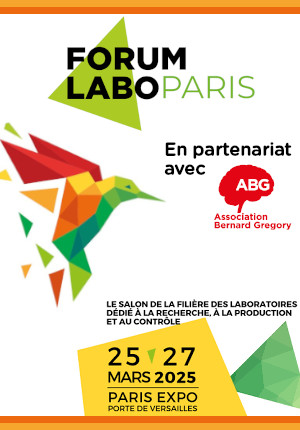La jurisprudence à l'épreuve des évolutions technologiques // The jurisprudential phenomenon facing technical developments
|
ABG-128622
ADUM-61302 |
Thesis topic | |
| 2025-02-14 |
Université de Bordeaux
Pessac - France
La jurisprudence à l'épreuve des évolutions technologiques // The jurisprudential phenomenon facing technical developments
- Sociology, anthropology, learning sciences
contentieux, jurisprudence, Intelligence artificielle, informatique, droit comparé, technologie
Case Law, Jurisprudence, artificial intelligence, computer science, comparative Law, technology
Case Law, Jurisprudence, artificial intelligence, computer science, comparative Law, technology
Topic description
L'activité des tribunaux français produit un contentieux quantitativement vaste. En 2023, pas moins de 1 911 185 décisions ont été rendues en matière civile et commerciale, auxquelles s'ajoutent les quelques 298 489 affaires réglées par les juridictions administratives (Les chiffres clés de la Justice. Édition 2024). Comprendre l'activité des tribunaux est crucial pour le fonctionnement du système judiciaire. Cela peut être abordé de deux manières principales : normative et réaliste.
Traditionnellement, les professionnels du droit appréhendent ce phénomène comme jurisprudence. Afin de déterminer comment les règles juridiques doivent être appliquées, les acteurs du système juridique produisent une description « jurisprudentielle » du contentieux. Certaines décisions perdent ainsi leur signification de cas particulier pour valoir interprétations authentiques d'un énoncé juridique. Seules quelques centaines de décisions sont ainsi publiées et commentées chaque année dans les revues juridiques. Plus rares encore sont celles qui intègrent les manuels ou ces ouvrages de références que sont « Les grands arrêts ». Ce processus de raréfaction du discours judiciaire implique une certaine herméneutique. Elle passe par l'inscription du contentieux au sein de supports dédiés : hier exclusivement papier, aujourd'hui aussi numériques.
Cette appréhension normative du contentieux comme jurisprudence n'est pas la seule façon de comprendre l'activité juridictionnelle. D'autres approches méthodologiques offrent une description non plus normative, mais réaliste du contentieux. C'est le cas de la description statistique du contentieux par la sociologie. L'analyse économique du droit et l'ethnométhodologie tentent de saisir le processus décisionnel pour en déchiffrer les facteurs et les manières.
Ainsi, la variété des formes de descriptions de l'activité judiciaire est généralement abordée à travers des questions théoriques liées aux épistémologies juridiques ou aux sciences sociales et économiques.
Le projet de thèse devrait ouvrir une perspective différente. L'hypothèse est que l'évolution des technologies impacte la description du contentieux et la théorisation qui peut en être faite. En particulier, les avancées technologiques dans le traitement des données influencent la façon dont se forme la connaissance du contentieux. Sans remonter à l'imprimerie, les ordinateurs des années 1980 ont déjà modifié l'appréhension du contentieux. Les nouvelles technologies ont permis une diffusion accrue et facilitée des décisions, qui étaient auparavant exclusivement accessibles par des formats papier. Enfin, le développement de l'IA et sa réception par les grands éditeurs juridiques permettent une approche renouvelée du contentieux, au point de potentiellement brouiller la distinction mentionnée précédemment entre descriptions normatives et réalistes de l'activité judiciaire.
------------------------------------------------------------------------------------------------------------------------------------------------------------------------
------------------------------------------------------------------------------------------------------------------------------------------------------------------------
The activity of French courts results in a vast amount of litigation. In 2023, there were no less than 1,911,185 decisions in civil and commercial matters, in addition to the 298,489 cases resolved by administrative courts (Les chiffres clés de la Justice. Edition 2024). Understanding the activity of the courts is crucial to the functioning of the legal system. This can be approached in two main ways: normative and realistic.
Traditionally, legal professionals apprehend this phenomenon through case law. In order to determine how legal rules should be applied, actors within the legal system produce a jurisprudential description of the litigation. Some decisions lose their simple significance and become authentic interpretations of legal statements. Only a few hundred decisions are published and commented upon annually in legal journals. This process of rarefying judicial discourse involves a certain hermeneutic approach and the inclusion of content in formats that were once exclusively paper-based, but are now also electronic.
This normative apprehension of litigation as jurisprudence is not the only way to understand it. Other methodological approaches offer a realistic description of litigation. This is the case with the statistical description of litigation by sociology. Economic analysis of law and ethnomethodology attempt to capture the decision-making process to decipher its factors and methods.
The variety of forms of descriptions of judicial activity is generally approached through theoretical questions related to legal epistemologies or social and economic sciences.
The thesis project should open up a different perspective. The hypothesis is that the evolution of technologies impacts the description of litigation and the theorization that can be made of it. In particular, technological advances in data processing influence how litigation knowledge is formed. Without going back to the printing press, computers in the 1980s already modified the apprehension of litigation. New technologies have enabled the increased and facilitated dissemination of decisions, which were previously exclusively accessible through paper formats. Finally, the development of AI and its reception by major legal publishers allows for a renewed approach to litigation, to the point of potentially blurring the previously mentioned distinction between normative and realistic descriptions of judicial activity.
Such research cannot be conducted solely in the context of French law. Legal comparison is necessary to understand the links between legal knowledge and technological evolution. Thus, the thesis will compare French law and English law. This comparative perspective will particularly address the different relationships between civil law and common law systems regarding these developments in data processing.
------------------------------------------------------------------------------------------------------------------------------------------------------------------------
------------------------------------------------------------------------------------------------------------------------------------------------------------------------
Début de la thèse : 01/10/2025
Traditionnellement, les professionnels du droit appréhendent ce phénomène comme jurisprudence. Afin de déterminer comment les règles juridiques doivent être appliquées, les acteurs du système juridique produisent une description « jurisprudentielle » du contentieux. Certaines décisions perdent ainsi leur signification de cas particulier pour valoir interprétations authentiques d'un énoncé juridique. Seules quelques centaines de décisions sont ainsi publiées et commentées chaque année dans les revues juridiques. Plus rares encore sont celles qui intègrent les manuels ou ces ouvrages de références que sont « Les grands arrêts ». Ce processus de raréfaction du discours judiciaire implique une certaine herméneutique. Elle passe par l'inscription du contentieux au sein de supports dédiés : hier exclusivement papier, aujourd'hui aussi numériques.
Cette appréhension normative du contentieux comme jurisprudence n'est pas la seule façon de comprendre l'activité juridictionnelle. D'autres approches méthodologiques offrent une description non plus normative, mais réaliste du contentieux. C'est le cas de la description statistique du contentieux par la sociologie. L'analyse économique du droit et l'ethnométhodologie tentent de saisir le processus décisionnel pour en déchiffrer les facteurs et les manières.
Ainsi, la variété des formes de descriptions de l'activité judiciaire est généralement abordée à travers des questions théoriques liées aux épistémologies juridiques ou aux sciences sociales et économiques.
Le projet de thèse devrait ouvrir une perspective différente. L'hypothèse est que l'évolution des technologies impacte la description du contentieux et la théorisation qui peut en être faite. En particulier, les avancées technologiques dans le traitement des données influencent la façon dont se forme la connaissance du contentieux. Sans remonter à l'imprimerie, les ordinateurs des années 1980 ont déjà modifié l'appréhension du contentieux. Les nouvelles technologies ont permis une diffusion accrue et facilitée des décisions, qui étaient auparavant exclusivement accessibles par des formats papier. Enfin, le développement de l'IA et sa réception par les grands éditeurs juridiques permettent une approche renouvelée du contentieux, au point de potentiellement brouiller la distinction mentionnée précédemment entre descriptions normatives et réalistes de l'activité judiciaire.
------------------------------------------------------------------------------------------------------------------------------------------------------------------------
------------------------------------------------------------------------------------------------------------------------------------------------------------------------
The activity of French courts results in a vast amount of litigation. In 2023, there were no less than 1,911,185 decisions in civil and commercial matters, in addition to the 298,489 cases resolved by administrative courts (Les chiffres clés de la Justice. Edition 2024). Understanding the activity of the courts is crucial to the functioning of the legal system. This can be approached in two main ways: normative and realistic.
Traditionally, legal professionals apprehend this phenomenon through case law. In order to determine how legal rules should be applied, actors within the legal system produce a jurisprudential description of the litigation. Some decisions lose their simple significance and become authentic interpretations of legal statements. Only a few hundred decisions are published and commented upon annually in legal journals. This process of rarefying judicial discourse involves a certain hermeneutic approach and the inclusion of content in formats that were once exclusively paper-based, but are now also electronic.
This normative apprehension of litigation as jurisprudence is not the only way to understand it. Other methodological approaches offer a realistic description of litigation. This is the case with the statistical description of litigation by sociology. Economic analysis of law and ethnomethodology attempt to capture the decision-making process to decipher its factors and methods.
The variety of forms of descriptions of judicial activity is generally approached through theoretical questions related to legal epistemologies or social and economic sciences.
The thesis project should open up a different perspective. The hypothesis is that the evolution of technologies impacts the description of litigation and the theorization that can be made of it. In particular, technological advances in data processing influence how litigation knowledge is formed. Without going back to the printing press, computers in the 1980s already modified the apprehension of litigation. New technologies have enabled the increased and facilitated dissemination of decisions, which were previously exclusively accessible through paper formats. Finally, the development of AI and its reception by major legal publishers allows for a renewed approach to litigation, to the point of potentially blurring the previously mentioned distinction between normative and realistic descriptions of judicial activity.
Such research cannot be conducted solely in the context of French law. Legal comparison is necessary to understand the links between legal knowledge and technological evolution. Thus, the thesis will compare French law and English law. This comparative perspective will particularly address the different relationships between civil law and common law systems regarding these developments in data processing.
------------------------------------------------------------------------------------------------------------------------------------------------------------------------
------------------------------------------------------------------------------------------------------------------------------------------------------------------------
Début de la thèse : 01/10/2025
Funding category
Funding further details
Appel à projets - UB PhD Scholarships
Presentation of host institution and host laboratory
Université de Bordeaux
Institution awarding doctoral degree
Université de Bordeaux
Graduate school
41 DROIT
Candidate's profile
Formation en droit (Droit public ou droit privé)
Théorie et méthodologie du droit
Une excellente maîtrise des langues française et anglaise
Sont éligibles uniquement des candidatures internationales, à savoir :
- des candidates ou candidats ayant obtenu (ou en cours d'obtention de) leur diplôme d'accès au doctorat (Master ou équivalent) dans un établissement à l'étranger
- des candidates ou candidats actuellement dans un Graduate Program de l'université de Bordeaux, inscrits en deuxième année de Master et ayant obtenu leur diplôme d'accès au Master dans un établissement à l'étranger
Seront prises en compte uniquement les candidatures soumises sur la plateforme suivante : https://aap.u-bordeaux.fr/ et avant le 17 mars à 23h59 (GMT Paris).
Un guide de candidature ainsi que la liste des documents à soumettre sont disponibles sur la plateforme.
Pour toute question, veuillez contacter : internationalisation.doctorat@u-bordeaux.fr
Legal Education (Public or Private Law) Theory and Methodology of Law Excellent Proficiency in French and English The UB PhD scholarship program is open to international candidates only, which means: - candidates holding (or currently enrolled in) a national level master's degree or another degree conferring master's status from a foreign institution - candidates currently in a Graduate Program, enrolled in second year of Master at the University of Bordeaux, and holding a degree from a foreign institution We will only consider applications submitted on the following platform: https://aap.u-bordeaux.fr/ and prior March 17, at 11:59pm (GMT Paris). A guide on how to apply as well as the list of documents to submit are available on the platform. For any question, please contact: internationalisation.doctorat@u-bordeaux.fr
Legal Education (Public or Private Law) Theory and Methodology of Law Excellent Proficiency in French and English The UB PhD scholarship program is open to international candidates only, which means: - candidates holding (or currently enrolled in) a national level master's degree or another degree conferring master's status from a foreign institution - candidates currently in a Graduate Program, enrolled in second year of Master at the University of Bordeaux, and holding a degree from a foreign institution We will only consider applications submitted on the following platform: https://aap.u-bordeaux.fr/ and prior March 17, at 11:59pm (GMT Paris). A guide on how to apply as well as the list of documents to submit are available on the platform. For any question, please contact: internationalisation.doctorat@u-bordeaux.fr
2025-03-17
Apply
Close
Vous avez déjà un compte ?
Nouvel utilisateur ?
More information about ABG?
Get ABG’s monthly newsletters including news, job offers, grants & fellowships and a selection of relevant events…
Discover our members
 Institut Sup'biotech de Paris
Institut Sup'biotech de Paris  PhDOOC
PhDOOC  Nokia Bell Labs France
Nokia Bell Labs France  Groupe AFNOR - Association française de normalisation
Groupe AFNOR - Association française de normalisation  Institut de Radioprotection et de Sureté Nucléaire - IRSN - Siège
Institut de Radioprotection et de Sureté Nucléaire - IRSN - Siège  SUEZ
SUEZ  Laboratoire National de Métrologie et d'Essais - LNE
Laboratoire National de Métrologie et d'Essais - LNE  CASDEN
CASDEN  Tecknowmetrix
Tecknowmetrix  ONERA - The French Aerospace Lab
ONERA - The French Aerospace Lab  TotalEnergies
TotalEnergies  Généthon
Généthon  ANRT
ANRT  Aérocentre, Pôle d'excellence régional
Aérocentre, Pôle d'excellence régional  Ifremer
Ifremer  MabDesign
MabDesign  MabDesign
MabDesign  ADEME
ADEME  CESI
CESI










